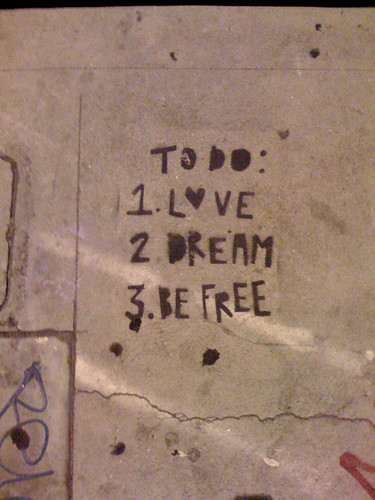
Life is a series of stories.
We are long unpredictable strands of narrative – here we intertwine and mesh, there we crosshatch and dither in little checks, we are not a uniform pattern or even a patchwork quilt. We are intersections that occasionally knot and collapse and move in dissonant trajectories.
What do we tell other people of the stories we’ve lived?
We do not quest for narrative, it is simply what we are. We take a left and the unseen narrator makes a note: Francine made a left up the hill, her steps guiding her to the park, to the reunion, to the funeral, to another day, to her escape.
We can’t force narrative into a thread it isn’t supposed to mend. We can’t imagine some natural order to the messy haphazard way life unfolds. We are a narrative, not a plot in three or five, neatly crafted acts – that’s for the birds and for the Hollywood editors mercilessly chopping what isn’t and what is into a nonsense parable that guides some toward foolhardy steps.
And again, to return to the question: what do we tell other people of the stories we’ve lived?
In some ways such a question is moot – we do not tell because our lives are their own, natural telling. The arrhythmia of life and its unexpected bouncing – from phenomena to tragedy to moment of dullness to fleeting urge of irresponsibility – is spoken in and of itself, we cannot change such tellings except in only the falsest of senses.
A book on the shelf next to me tells us that history is typically written by those that dominate, that conquer, that oppress others with their willful power. But even such a statement is a prologue to the counter narrative of a dominated people
That said, every story is a finality. Sure, it is a multifaceted story and one that cannot be viewed without the pink laser-tubed vision of someone other than us, but it is still narrative.
And so, again, what do we tell other people of the stories we’ve lived?
Again, we do not. We let the stories speak for themselves. Our retellings smooth the sharper edges, they warm the colder nights, and they grasp with greater strength at the tenuous frailty of loss that we hope cannot be.
Perhaps more importantly, we are not without agency in this narrative paradigm.
You, even as you read or type or be a part of this missive, have strength and willful power to move your thread. Try it – move it closer to someone nearby. Go ahead, I’ll wait. You have the strength to live the parable you want or to approximate the rom-com you wish you were. You cannot go back, but don’t worry about that. We are a large people – our threads feel seemingly endless, don’t they? We can be confirmation and refutation at once. We can be contradictions and illogical beings and not have to suffer any consequences but our own. We are the viceroys of our own rules.
And narrative is not some magic trick to change what we do or change what one sees as relevant or the life choices we make.
Narrative is simply the way we move about – by becoming story we are inculcated into a world bigger than just ourselves. That should be comforting.
We wish we were tied to only those choices that are easy. However, those narrative steps that create provocation, those steps that might be outright tendentious are the moments that define who we are.
And does love play a part in narrative?
Sure. But only in as much as work and play and death and creation and ineptitude and bureaucracy and wonder are also the natural ingredients of narrative. We may stare in eyes and furrow brows and assume that that is what one’s narrative is about, that it is what gives purpose.
But we forget.
Narrative is purposeless.
Narrative is without plot.
Narrative is not guided by an invisible hand or the kind of meant-to-be talk that elevates only illusorily.
And this is not without relevance to our classrooms. They are the natural extension of our own narratives. What story am I helping weave for students each day? What stories do they guide my narrative toward? How am I inspired by the work in my classroom – the love that burgeons in our classes – to better guide my actions?
What are the narrative hopscotch flip-flops that will define your area of the non-patchwork weaving your thread becomes?
Tell people this is awesome:







